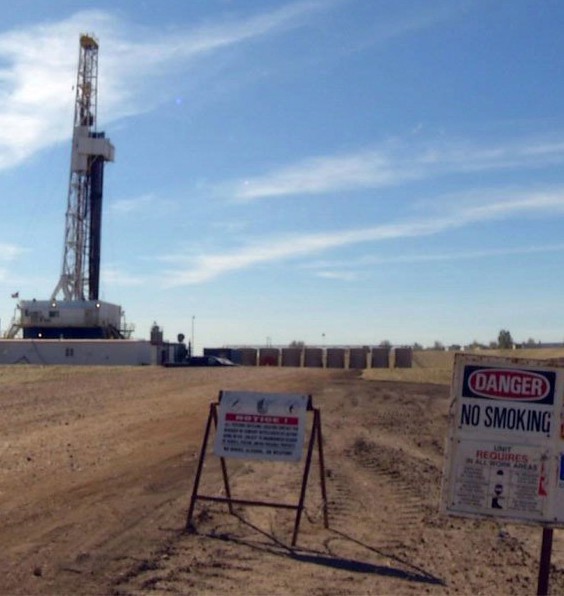Capitalism run amok is a scary thing. It creates the horrid air quality and high cancer rates in China just as readily as it can create opportunities for the previously underprivileged.
In visiting a couple of the modern Gold Rush towns in fracking-friendly North Dakota, Henrietta Norton and Dan Dennison of the Guardian witnessed many of the social costs of the of rapid transformation of former farmland, but they also find a more complicated story in the wake of the oil price collapse, one in which striving Americans try to remake their fortunes in a tumultuous landscape during a time of economic uncertainty.
The opening:
“You’re going to see it all there – gang banging, sex trafficking, gambling, drugs, all the dark stuff, they’ve ruined the place,” says the man on the front desk at the Super 8 Motel where we stop for the night en route from Fargo.
The Bakken region has been at the heart of the latest oil boom since the early 2000s, when new technology enabled horizontal drilling and hydraulic fracturing to access minerals found in the layers of rock beneath the ground. It occupies 200,000 square miles, and stretches from Montana and North Dakota across into Saskatchewan and Manitoba in Canada.
In the past five years, there has been a dramatic influx of people in North Dakota. Many towns have become synonymous with the term “man camp”, as tens of thousands of men have arrived in search of work in the rigs, or to lay the pipeline. There’s a joke amongst them: “There’s a woman behind every tree in North Dakota … it’s just that there aren’t any trees.”•
Tags: Dan Dennison, Henrietta Norton

